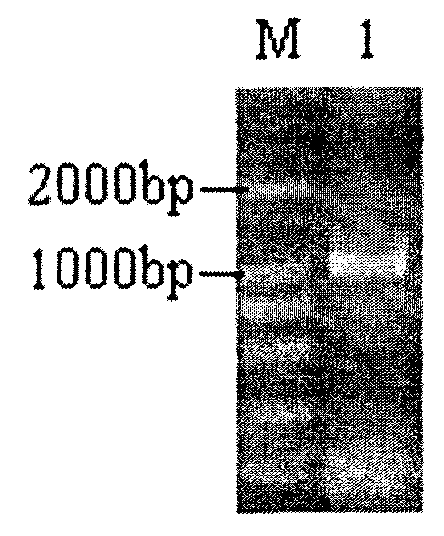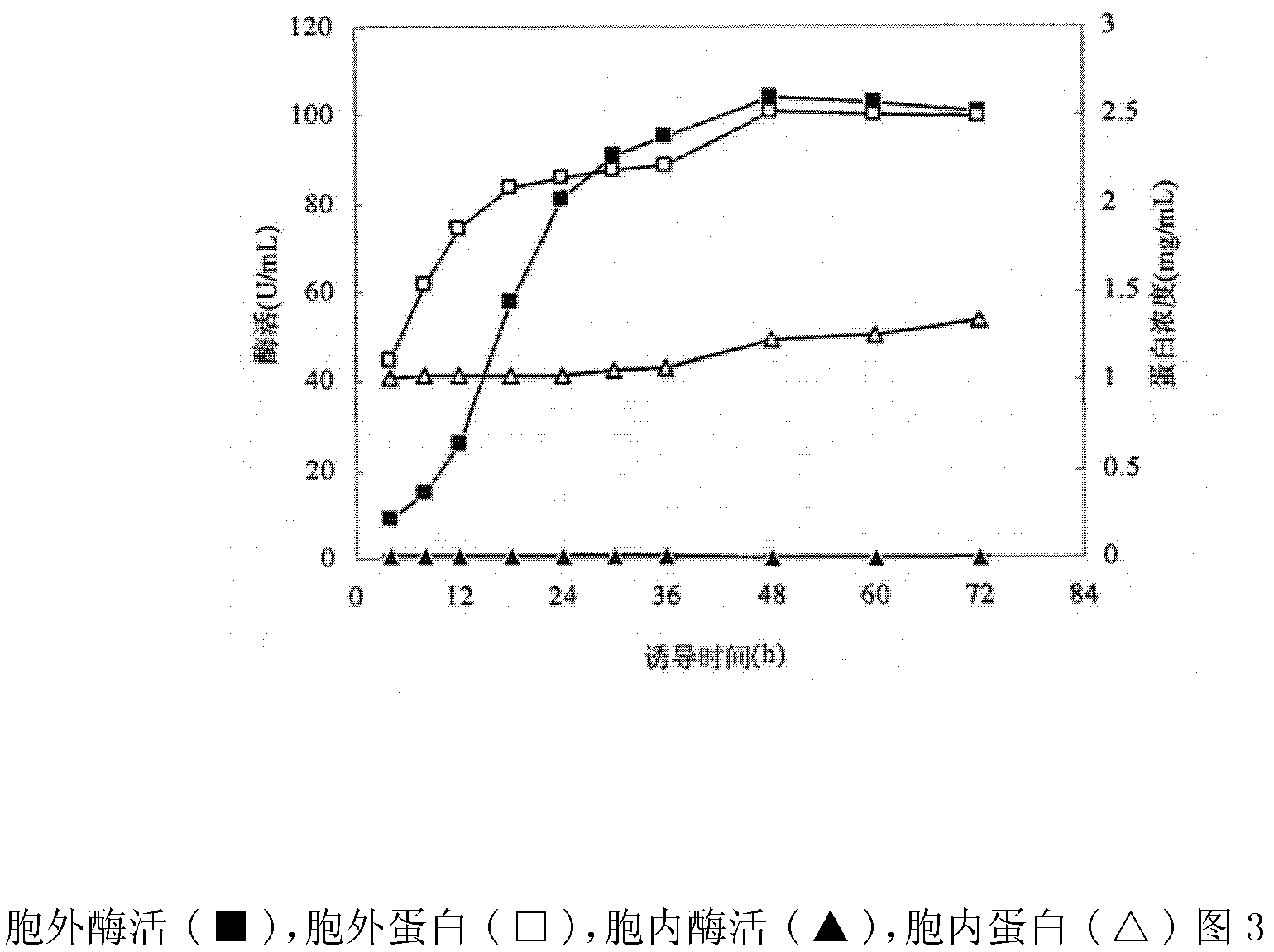Beta-xylosidase and encoding gene and application thereof
A technology for encoding genes and genes, which is applied in the fields of application, genetic engineering, plant genetic improvement, etc., can solve the problems of unreported literature, small expression of xylosidase, cumbersome purification steps, etc., and achieve environmental friendliness, simple purification process, The effect of high recovery rate
- Summary
- Abstract
- Description
- Claims
- Application Information
AI Technical Summary
Problems solved by technology
Method used
Image
Examples
Embodiment 1
[0042]Embodiment 1, the discovery of β-xylosidase gene
[0043] 1. PCR amplification of the conserved region of the β-xylosidase genome
[0044] According to the amino acid sequence of filamentous fungal β-xylosidase in the GeneBank database, the conserved region was searched using the online software Block Maker (http: / / blocks.fhcrc.org / blocks / blockmkr / make blocks.html). According to the conserved amino acid sequence of xylosidase, the online design software CODHOP (http: / / blocks.fhcrc.org / codehop.html) was used to design degenerate primers xylDF and xylDR (see Table 2) to Paecilomyces thermophila ( The genomic DNA of Paecilomyces thermophila) J18 was used as a template, and the degenerate primers xylDF and xylDR in Table 2 were used for PCR amplification. The PCR amplification conditions were as follows: 95°C for 5min; ℃) 45min, 1min at 72℃, 10 cycles; 30s at 95℃, 45min at 55℃, 1min at 72℃, 20 cycles; 1min at 72℃. The conserved region fragment amplified by PCR (results see...
Embodiment 2
[0051] Embodiment 2, the efficient expression of β-xylosidase
[0052] 1. Acquisition of recombinant bacteria
[0053] 1. Acquisition of β-xylosidase gene
[0054] According to the genes shown in sequence 1 in the sequence listing, primers xylF and xylR at both ends were designed (see Table 2), and the cDNA of Paecilomyces thermophila (Paecilomyces thermophila) J18 was used as a template to carry out PCR amplification using primers xylF and xylR at both ends , the results of gel electrophoresis of the amplified product are shown in figure 2 .
[0055] The PCR amplified product was recovered by the gel kit and connected to the pMD-18T vector, transformed into Escherichia coli JM109 by heat shock method, and the positive recombinant plasmid was named pMD18T-xyl. Then sent for sequencing.
[0056] After sequencing, the amplified product has the 1-1014 nucleotides from the 5' end of sequence 1 in the sequence table, and no stop codon (1015-1017 from the 5' end of sequence 1),...
Embodiment 3
[0077] Embodiment 3, the application of β-xylosidase
[0078] 1. Preparation of corn cob steam explosion liquid
[0079] Weigh 100g corn cob (containing 32.4% xylan), add 800mL of distilled water, soak at room temperature for 12 hours, put it into a high-pressure tank, cover and seal it, heat it and start timing when the reaction temperature reaches 165°C, and open the ball valve immediately after keeping it warm for 30 minutes , Release the material (steam explosion liquid) into the collection tank. Suction filtration when the temperature of the collected material (steam explosion liquid) drops to 60-70°C, after the filtrate is cooled to room temperature, the thin layer chromatography (TLC) measurement result is as follows: Image 6 Shown, HPLC measures its xylooligosaccharide ratio (results are shown in Table 4). Adjust the pH of the steam explosion solution to 7.0 with 1M NaOH solution, and refrigerate at 4°C for later use.
[0080] Table 4. Effect of xylosidase enzymati...
PUM
 Login to View More
Login to View More Abstract
Description
Claims
Application Information
 Login to View More
Login to View More - R&D
- Intellectual Property
- Life Sciences
- Materials
- Tech Scout
- Unparalleled Data Quality
- Higher Quality Content
- 60% Fewer Hallucinations
Browse by: Latest US Patents, China's latest patents, Technical Efficacy Thesaurus, Application Domain, Technology Topic, Popular Technical Reports.
© 2025 PatSnap. All rights reserved.Legal|Privacy policy|Modern Slavery Act Transparency Statement|Sitemap|About US| Contact US: help@patsnap.com



